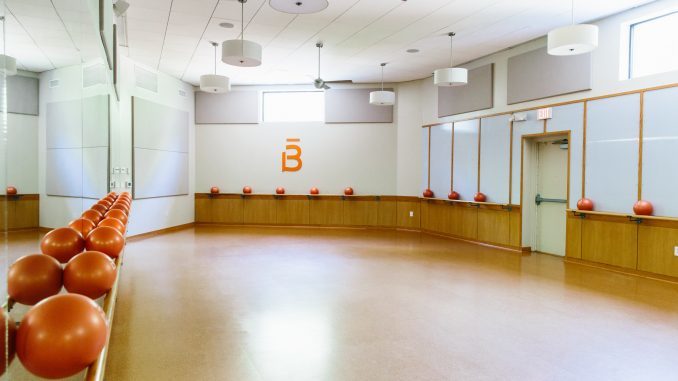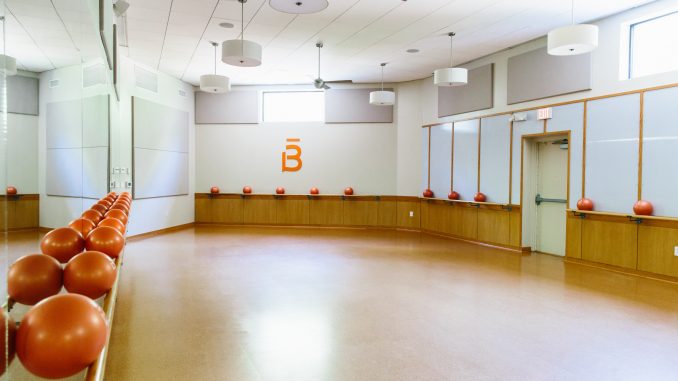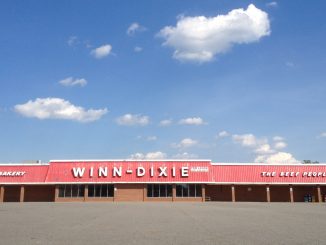

If you ask a friend, family member, or coworker to list the top three things they miss most about life before social distancing, they will likely say it has something to do with their fitness regimen. Across the country, stir crazy Americans that have been forced to stay home and change not only how but where they exercise, and in many states, fitness businesses are making it clear that they have had enough.
In Virginia last month the owner of a local Gold’s Gym filed a lawsuit against Governor Ralph Northam challenging his authority to close private fitness centers and categorize them as nonessential businesses. The lawsuit asserts that Northam exceeded his constitutional authority by closing public access to recreational and entertainment businesses.
The parent company of Gold’s Gym filed for Chapter 11 bankruptcy protection, forced to restructure assets due to the coronavirus pandemic, said CEO Adam Zeitstiff on Monday.
Meanwhile in New Hampshire, representatives of fitness clubs recently told a task force focusing on reopening the state’s economy that they’re fully prepared to make a variety of health and safety adjustments in order to resume operations as soon as possible. One presenter suggested that health clubs rearrange floor plans, cordon off areas, decrease group exercise class sizes and stagger appointments.
The coronavirus has prompted a shift away from physical gyms and towards at-home virtual exercise programs and coaching apps. As a result, many national and local fitness chains are either filing for Chapter 11 bankruptcy or asking their customers to consider suspending memberships until things return to normal. Yet with no clear signal on when that will be, even non-fitness buffs are turning to plan B, and investing in their own in-home equipment. For instance, sales of Peloton Interactive exercise bikes surged 66% in recent weeks despite the machine’s $2,000-plus price tag.
Margo Pitts, a Raleigh-based triathlete and Ironman Certified Coach says she has definitely missed her regular gym sessions at the YMCA. “Strength training and swimming laps have been a part of my weekly routine for years so about 8 weeks ago I purchased resistance cords for dry land swimming exercises. I am just thankful that I can still enjoy cycling and running outside,” she said.
On the other side of the equation are the gym and fitness center owners, many of whom have invested their owns money into making their facilities successful. Tori Fox owns and operates Raleigh’s Barre 3 studio and was in the process of opening up a second location in Cary before the crisis hit. She says she has had to endure several months of lost revenue and had to lay off a lot of staff. While the studio did receive a government loan through the Paycheck Protection Program, it was not enough to offset all of the lost revenue the studio has missed since its March 16th closing. “Revenue is down 53% from a typical month and our rent stayed the same, so we’ve been forced to pay it. This plus the loss of some members has been a huge setback for us as owners and for the business as a whole.”
In order to maintain their client base, gym owners are coming up with creative customer loyalty perks even as they operate on a purely virtual basis.
Steve Johnson, who owns Crossfit RDU (previously Crossfit Six Forks and CrossFit SWAT) loaned out all of his gym’s equipment, $60,000 worth, including bikes, rowers, weights, bars, and even the rubber floor mats so people would not have to sit on concrete at home. “We actually closed a week before the mandate due to my own thoughts and conversations I was having with a friend who is an infectious disease doctor,” Johnson said.
Elizabeth Pagano and her husband have been members of Crossfit RDU since 2008. She says they were struck by how much Johnson cares about his clients’ health and safety as was evident by the fact that he loaned out all his equipment and that he decided to close the gym before the government-issued mandates went into effect. “Steve went above and beyond to make sure we could all continue working out. CrossFit RDU has an amazing community and I can’t wait to get back to working out with my friends again,” Pagano said.
For his part, Johnson says his clients have been unbelievable strong and helpful during this time. “No client was taken off our members page as we understand this situation has had a different impact on each of us. We only had 22 of 250 clients cancel until reopening, with the majority remaining at full price to support the gym until it reopens. I cannot say enough about how incredible all of the members have been,” Johnson said.
Crossfit RDU members were given the option to stay at full price, go to $75 per month for online classes, or cancel until the gym is up and running again. “We continued our normal programming as if everyone was still coming to the gym,” Johnson said. “I make a video each day as if I am coaching a class at the gym and post it on our Facebook page. Our nutrition coach has continued to provide coaching and resources to our clients. We also have an on-site physical therapist that has been posting mobility and movement content as well.”
Governor Cooper has yet to announce when fitness centers can open again, still the facilities are moving forward publishing extensive guidelines for when they are allowed to operate. “We’ve always functioned with extreme cleaning measures, but the new guidelines address best practices for cleaning and disinfecting, which are two different things,” Fox said. “We feel confident that we can reopen safely because our clients don’t share equipment and we have the ability to easily social distance, clean and disinfect.”
Barre 3 is taking a number of measures to ensure their clients feel safe working out once things do reopen. Perhaps the biggest change for those who are familiar with barre is that the equipment will not be shared, and the instruction will no longer be hands on. Additionally, they are updating bathrooms with touchless sinks and towel and soap dispensers and decreasing class sizes to allow for at least 6 feet of space between stations. Disinfectant wipes will be readily available should anyone wish to disinfect their props before use, and they will allow at least 30 minutes between classes so the staff can disinfect the building.
Crossfit RDU, which is 14,000 sq. ft., is taking similar precautions. Johnson has divided the gym into two separate rooms, limited class sizes, and says each class will consist of the same group of people each day to limit the amount of people a client comes in contact with. Each person will also get their own dedicated space and equipment that they will only share with the same people each day. “So the same person that is at station 1 at 5:30, 6:30, or 9:00 for instance will be the same person from that class each day,” he said.
Uncertain about what the longer-term impact of the coronavirus will be on gyms as a whole, both Ms. Fox and Mr. Johnson acknowledge that while the pandemic may permanently change how when and where Americans choose to work out there will always be an appetite for shared group exercise experiences. For the time being, it is at least comforting to know we can all get outside as the weather continues to improve. “People need movement now more than ever both mentally and physically,” Fox said.



